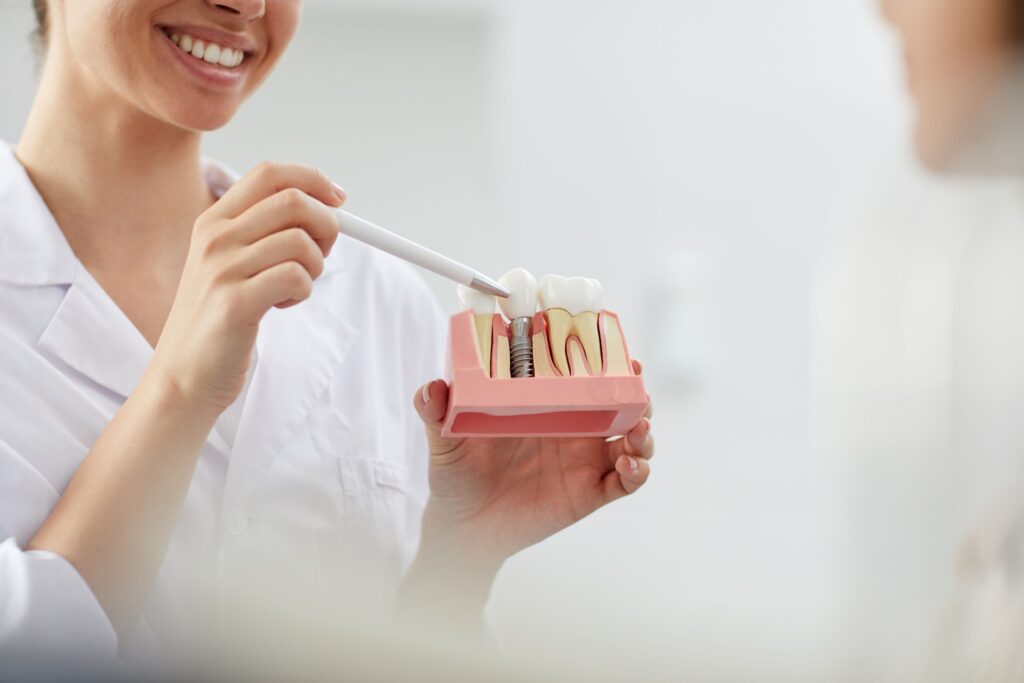
Many experts consider dental implants the ideal way to replace missing teeth because they’re the only option that’s embedded directly into your jawbone. As a result, they’re stronger and tend to last longer than alternatives like dentures and dental bridges.
However, that also means these are the only replacement teeth that involve oral surgery. It’s normal to have questions about the procedure, like when you can return to work afterward. Although it’s probably wise to plan on taking a day or two away from the office, the answer can vary from person to person because it depends on your unique situation. Continue reading to learn about 3 factors that can affect your recovery timeline!
Consideration #1: Your Age
Did you know that as you get older, your jaw naturally loses density as your body generates less new bone growth? That’s bad news for your dental implants. They can function as sturdy standalone structures because your jawbone fuses with the titanium rod in a process called osseointegration. If you already lack bone density, your mouth might not complete this process successfully, leading to a failed restoration.
Sometimes, a bone graft procedure can bulk up your jaw enough to proceed but will require additional downtime to mend.
Consideration #2: The Number of Implants
Dental implants are a versatile solution that can restore your smile’s appearance and functionality regardless of how many teeth have gone missing. For example, a single lost tooth can be relatively easily replaced with one pole capped with a customized dental crown. If you’ve lost several teeth in a row, two can be placed on either side of the gap in your grin to anchor a permanent dental bridge. Those with no natural teeth remaining might benefit from 4 to 8 implants to hold a specially designed set of dentures to replace an entire arch simultaneously.
Generally, if you’re having multiple metal poles inserted into your jawbone, you can expect a longer recovery period than those receiving only 1 or 2.
Consideration #3: Your Dental Hygiene Habits
It’s imperative that you keep your mouth clean after your procedure to prevent a possible infection at the implant site. Initially, you can rinse with warm salt water to avoid harming the blood clot that must form to protect your prosthetic. Then, when it’s safe, you can resume brushing and flossing your teeth twice daily. This removes bacteria and plaque buildup that can contribute to decay and disease that could cause your implant to fail.
Your dentist can give you a more accurate idea of how long to take off of work based on your individual circumstances!
About the Author
Dr. Arindam Kakkar enjoys helping people improve the quality of their lives by enhancing their dental health. He earned his dental degree at NYU where he was invited into the dental honor society, the OMICRON KAPPA UPSILON. Now, he offers a wide range of top-quality services to meet all your needs conveniently under one roof. He combines a friendly and welcoming approach with state-of-the-art equipment to quickly assess areas of concern and provide accurate treatments to address them. Plus, he has the advanced training to perform the dental implants process from start to finish in the office. You can request an appointment on the website or call (908) 850-0005.
